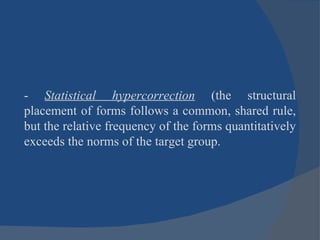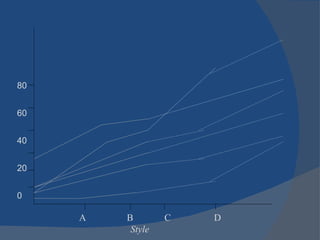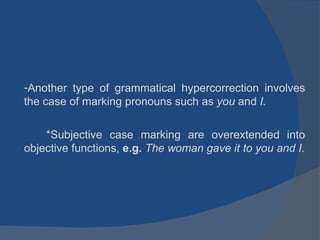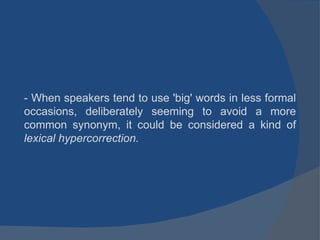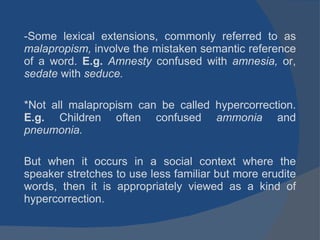The document discusses different levels of linguistic variation between dialects of English, including lexical, phonological, grammatical, and pragmatic differences. It also addresses the concepts of dialect code switching and hypercorrection, where speakers adjust their language use depending on social context and audience. Hypercorrection occurs when speakers extend linguistic structures beyond their regular boundaries in an attempt to appear more standard.
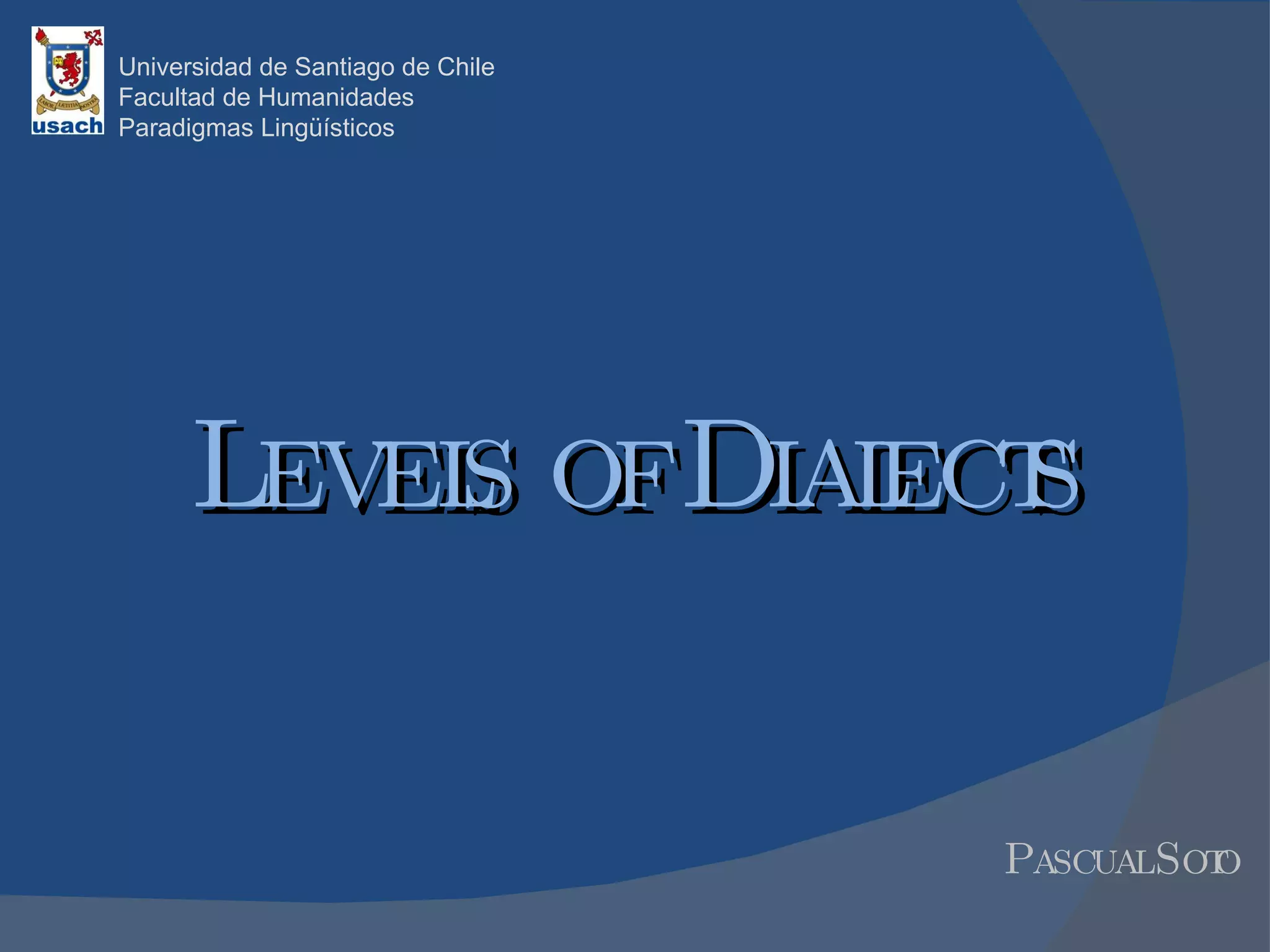
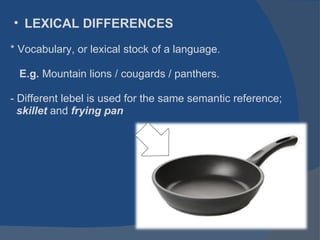
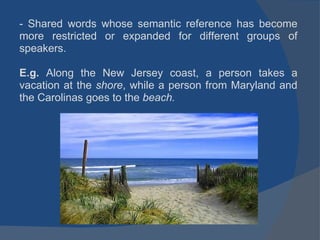
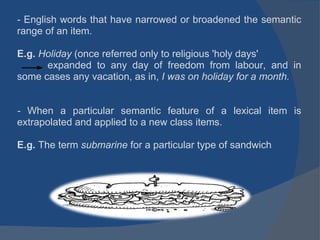
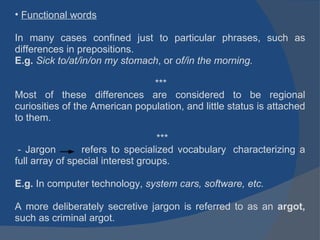
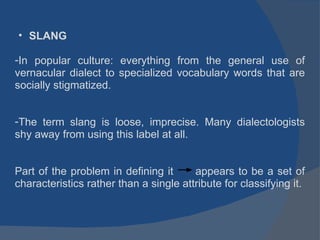

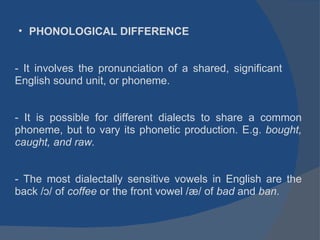
![High vowels Front of [i] (beet) [u] (boot) Back of mouth mouth [ɪ] (bit) [U] (put) [e] (bait) [o] (boat) [ɜ] (bet) [ə] (about) Front [ʌ] (but) Front vowels [æ] (bat) [ɔ] (bought) vowels [a] (father) Low vowels](https://image.slidesharecdn.com/levelsofdialects-101208193802-phpapp02/85/Levels-of-dialects-9-320.jpg)
![- Phonetic rotation in vowels, known as chain shifting, i.e. the lowering of a vowel like the [ɔ] in bought closer to that of the [a] in father may have the effect of moving the vowel of words like pop forward, closer to the [æ] of bat. This movement, in turn, may cause the vowel of bat to change its phonetic position, moving closer to the [ɜ] of bet. The point is that vowels are not functioning as independent units, but as a rotating system. [æ] [ɔ] [a]](https://image.slidesharecdn.com/levelsofdialects-101208193802-phpapp02/85/Levels-of-dialects-10-320.jpg)
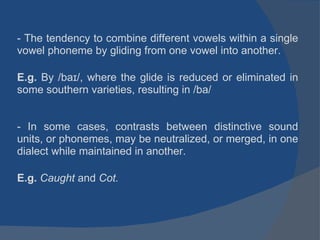
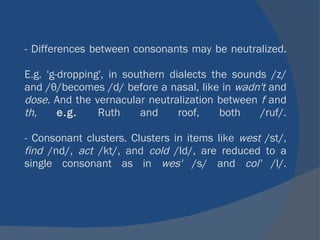
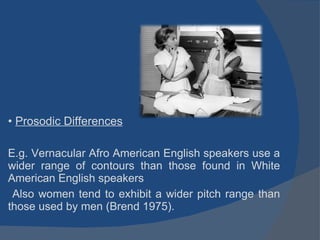
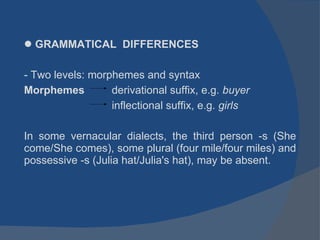
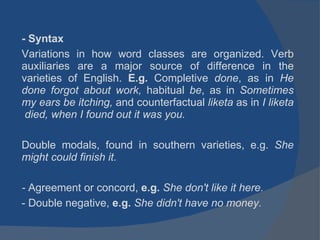
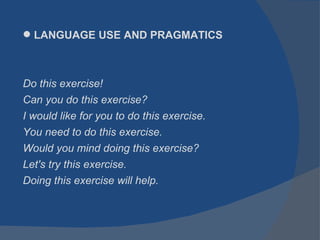
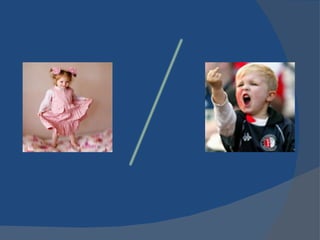
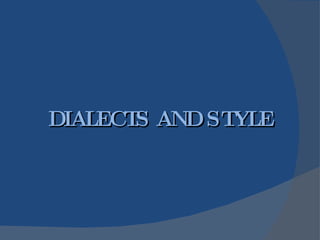
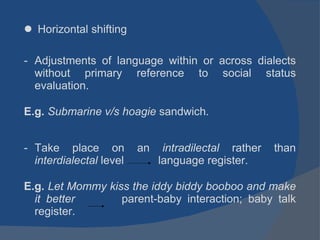
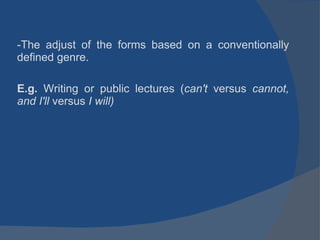
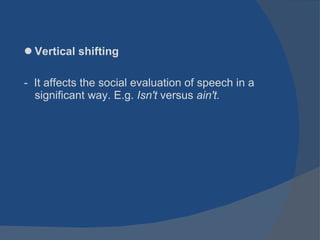
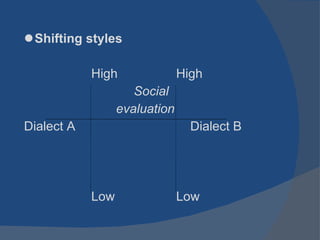
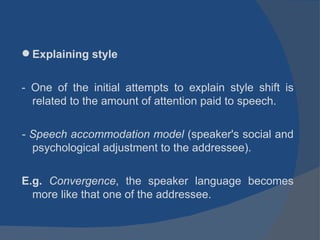
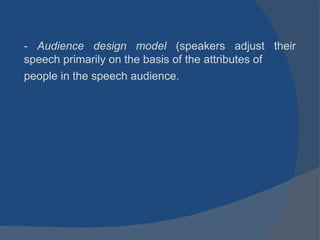
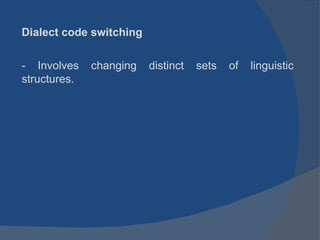
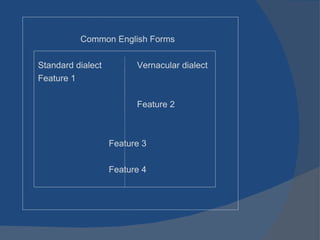
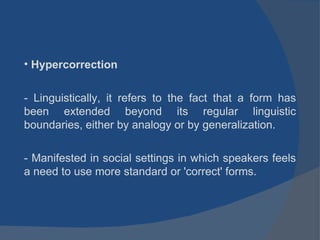
![Structural hypercorrection (where the boundaries of linguistic patterns are extended) e.g. When speakers extend the objective case ending of the relative pronoun to subjective function, as in Whom is it? - Speakers attempting to use 'precise pronunciation' might add a /t/ to words which ends in /s/, as in synthesis resulting in synthesist. - In phonology, substitution or addition of a sounds. E.g . Vernacular dialects normally uses /f/ instead of the standard /θ/, as in bath [f]](https://image.slidesharecdn.com/levelsofdialects-101208193802-phpapp02/85/Levels-of-dialects-28-320.jpg)
